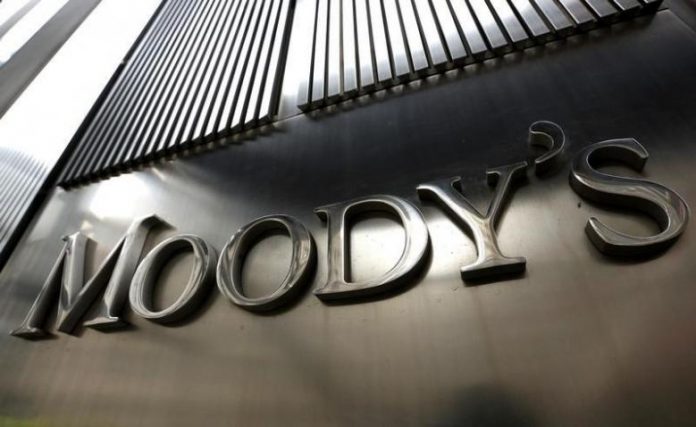ISLAMABAD: As Moody’s Investor Service says global spread of new coronavirus (COVID-19) will significantly slow economic growth, the global rating agency on Tuesday lowered the forecast for Pakistan’s growth rate at 2.5per cent for the current fiscal year owing to Covid-19. The New York based rating agency had earlier projected Pakistan’s growth rate at 2.9pc for 2019-20 in December 2019.
The agency says risks for the entire Asia-Pacific (APAC) region were generally on the downside.
“Risks for APAC firmly tilted to the downside, including from much weaker European and American economies than currently assumed”, said Moody’s in its latest “Regional Credit Outlook Update on Evolving Coronavirus Impact”. It forecast 4.8pc growth rate for China, down from 5pc earlier, on assumptions of slow resumption of economic activity and weak export demand.
It said the revised forecasts for the APAC region were based on coronavirus implications, incorporating ongoing travel restrictions and heightened containment measures, as well as the recent oil price shocks.
“Our baseline scenario assumes declining consumption levels and continuing disruptions to production and supply chains in the first half of 2020, followed by a recovery in the second half of the year,” says Christian de Guzman, a Moody’s Senior Vice President.
In the short run, this is playing out as both negative supply and demand shocks, and the longer the disruptions last, the greater the risk of a global recession. Rising infection rates would further impede global sentiment, heightening asset price volatility and tightening financing conditions, which could snowball into a deeper economic contraction.
A number of governments have already announced measures to cope with the impact of the coronavirus, and Moody’s expected there will be more fiscal stimulus as the extent of the economic fallout becomes clearer. However, some governments – mainly frontier markets – may be constrained by their high indebtedness and limited access to funding. Pakistan is among them owing to more than 80pc of GDP debt burden and weaker fiscal balances.
At the same time, the Moody’s noted significant economic fallout from more rapid and wider spread of the coronavirus as dampening domestic consumption demand in affected countries exacerbates disruptions to supply chains and cross-border trade of goods and services. “The longer the disruptions last, the greater the risk of global recession becomes”, Moodys said adding risks were skewed to the downside.
Moreover, oil price shock was adding to growth and fiscal pressures for exposed sovereigns. A period of lower oil prices will further weigh on the economic and fiscal fundamentals of oil exporters, while mitigating the trade shock for importers.
It said the global financial volatility was heightening the liquidity and external vulnerability risks for APAC’s frontier markets. Tighter funding conditions and exchange rate depreciation could stress sovereigns with high foreign currency exposure, heavy reliance on external market funding or low foreign currency reserve coverage.
As per the agency, global automakers are also under great pressure because of their reliance on international supply chains, while gaming and non-food retail in certain regions are also exposed to supply chain disruptions, and the inevitable decline in foot traffic
Moody’s Investors Service has said the COVID-19 will significantly slow economic growth, which will in turn amplify its financial impact on several key free movement-driven sectors.
“Sectors reliant on trade and the free movement of people are most exposed, such as passenger airlines, shipping, and lodging and leisure, which includes cruise lines and restaurants,” Vice President – Senior Credit Officer – Benjamin Nelson at Moody’s said in a statement.
“Companies’ ability to withstand the effects of the virus will depend on its duration, and we caution that as events unfold very rapidly on a daily basis, our assessment of exposure will change over time,” another Vice President – Senior Credit Officer – at Moody’s Richard Morawetz said.
The agency’s downside scenario factors in a jump in cases and public fear that the virus will not be contained in the first half of 2020, leading to extensive and prolonged travel restrictions and quarantines, along with a prolonged slump in commodity prices.
The number of deaths around the world linked to COVID-19 has topped 7,000, after Italy announced a new surge in fatalities, with over 1,75,000 infections recorded globally so far.




